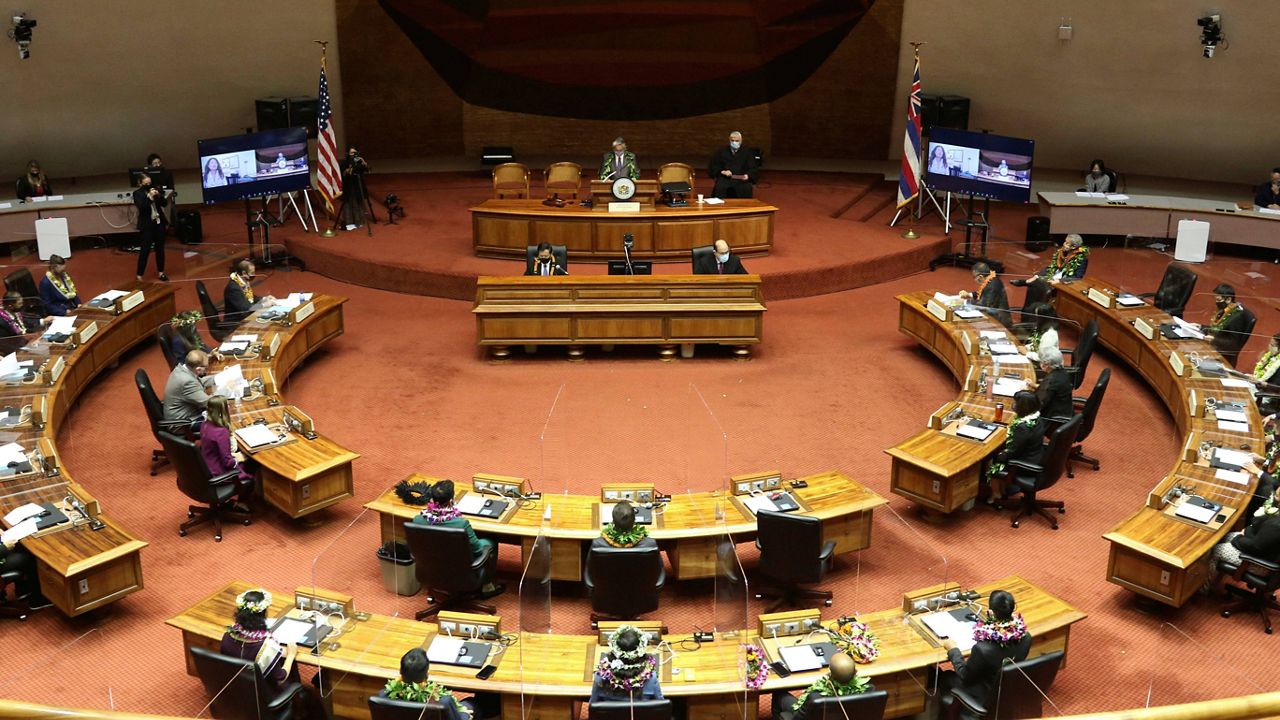HONOLULU — A bill that would raise Hawaii’s minimum wage to $18 by 2026 passed the state Senate’s Labor, Culture and the Arts committee on Monday and now heads to the Ways and Means committee for review.
SB 2018 would raise the minimum wage in Hawaii for the first time since 2018.
The current minimum wage stands at $10.10 per hour. The bill would raise that to $12 per hour this year, $15 per hour in 2024 and finally $18 in 2026.
Supporters say the bill is long overdue and is necessary to help residents afford the state’s high cost of living. Opponents have argued that the bill raises wages too much too quickly and that increased labor costs will only be passed on to consumers.
The bill has received support from Gov. David Ige, the Hawaii State Teacher’s Association, the Department of Labor and Industrial Relations, the Department of Human Services, United Public Workers, the Maui County Council, as well as other agencies and organizations.
Kristen Alice, director of community relations for Hope Services Hawaii and vice-chair of Community Alliance Partners, said workers suffer because wages have stayed the same while housing prices have increased.
“The No. 1 reason for homelessness here on Hawaii Island is that there is a lack of affordable housing available to people, especially our local residents who are being priced out as out-of-state buyers and investment trusts and others are buying up property,” she said. “Our local people are being forced out onto the streets.”
In written testimony submitted to the committee, the Kauai Office of the Prosecuting Attorney called paying a living wage “a public safety issue.”
“Increasing the minimum wage reduces poverty,” the testimony stated. “The current minimum wage has not kept up with inflation and is not high enough to allow people to afford housing and other necessities. Increasing the minimum wage decreases the burden on public assistance, decreases individual’s contact with the criminal justice system, and provides families with options and opportunities.
Several testifiers also spoke in favor of adding a provision that would do away with the so-called earned tip credit, which allows employers to credit $0.75 of tips earned by an employee toward the employee’s minimum wage when the employee earns at least $7 in tips.
There has been significant resistance to the bill from restaurants, retailers and other businesses who stand to see their labor costs rise. Among those testifying in opposition to the bill were the Retail Merchants of Hawaii, the National Federation of Independent Business, the Hawaii Food Manufacturers Association, the Society of Human Resource Management Hawaii, and others.
Lauren Zirbel, president of the Hawaii Food Industry Association, which represents some 20 grocers and other food-related businesses, said a significant increase in the minimum wage would have negative ripple effects for consumers.
“Retail grocery operates on about a 1% profit margin, so if labor costs are to increase dramatically, there would be a corresponding link to increased food prices or changes to the labor market,” Zirbel said.
Zirbel said reducing or eliminating taxes on groceries would be a more effective way of helping working families.
Thirty-two states and the District of Colombia exempt most food purchased for consumption at home from state sales tax and another six states tax groceries at a lower rate, according to the Center on Budget and Policy Priorities.
Most of those submitting oral or written testimony opposing SB 2018 said they did not object to raising the minimum wage but felt increases of $3 per year every other year places too heavy a burden on employers.
“We appreciate a staggered approach, but this is moving very quickly,” said Maui Chamber of Commerce president Pamela Tumpap.
Tumpap said a survey of members found that half were in favor of raising the minimum wage to $12 an hour in 2023 but wanted the increases capped at $16 an hour in 2027. More than 20% indicated that they would be forced out of business if the minimum wage reached $18 an hour by 2026.
“Maui was the most dependent island on visitor industry,” she said. “We keep hearing that businesses have recovered but they’re still in recovery with lower annual sales, supply chain issues, outstanding loans, having to pay back amounts on commercial rent and mortgage, savings depleted due to the pandemic and they’re trying to keep all their people employed. And, of course, now they’re dealing with the omicron challenge.”
In discussion following oral testimony, Sen. Kurt Fevella, the lone Republican in the Senate, voiced his support for the measure, invoking the untenable circumstances of one of his constituents as anecdotal evidence of a widespread problem.
“She’s done the work of three people for 20 years and she wants to make a decent wage,” he said. “She catches the bus every day, home and from, eats almost the same meal every day because that’s all she can afford. The time to do something is now. We cannot wait.”
The bill was unanimously passed without amendments with a recommendation of passage upon second reading.
